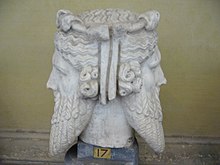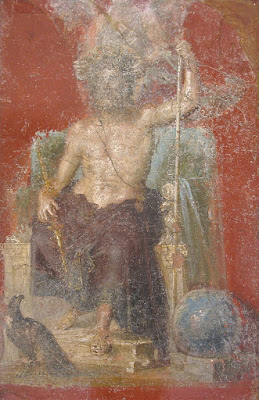Calendar of Romulus:
1. Martius - 31 Days: Month of Mars, the god of war
2. Aprilis - 30 Days: Month of Aphrodite, the Greek goddess of love and beauty.
3. Maius - 31 Days: Month of Maia. Maia is one of the Pleiades. They are the companions of Artemis in Greek mythology.
4. Iunius - 30 Days: Month of Juno an ancient Roman goddess who is the protector of the state.
5. Quintilis - 31 Days
6. Sextilis - 30 Days
7. September - 30 Days
8. October - 31 Days
9. November - 30 Days
10. December - 30 Days
We may wonder, what is going on between December and March that is like 50 days. Those days are the unnamed stretch of time “Winter”.
The Romans numbered the days of the month by putting place markers around the Calends (the beginning of the month), the Nones (the 5th or 7th day), and the Ides (the 15th day of March, May, July, and October and the 13th day of other months). Ides of March is the day on which Julius Caesar was assassinated. Each day was referred to how many days it fell before the Calends, the Nones, or the Ides. For example, May 11 would be referred as “5 Ides” because it is 4 days before May 15, the Ides of May.
 But this calendar had a problem- it did not align with the seasons. King Pompilius added January (Month of Janus the god of gates) and February (Month of Februa, the feast of purification). They had the intercalary month which is the extra month added to make up for the days or months needed to keep the calendar aligned with the seasons.
But this calendar had a problem- it did not align with the seasons. King Pompilius added January (Month of Janus the god of gates) and February (Month of Februa, the feast of purification). They had the intercalary month which is the extra month added to make up for the days or months needed to keep the calendar aligned with the seasons.(January was named after Janus, the god of doors, because he was also the god of beginnings, and January is the beginning of the year.)
The intercalary month was removed by Julius Caesar when he became the pontifex maximum (the head priest) who has the authority to change the calendar.
 After Caesar’s assassination, Mark Antony renamed Quintilis as July after Caesar.
After Caesar’s assassination, Mark Antony renamed Quintilis as July after Caesar.Augustus renamed Sextilis as August after him. The emperors who followed Augustus tried to rename the months after them but it did not succeed.
This is the fragment of an ancient Roman calendar. Calends are marked as C, Nones are marked as NON and Ides are marked as EID in the Roman calendar.


“Ides of March” Ancient Roman coin
Resources:
https://en.wikipedia.org/wiki/Ides_of_March
https://en.wikipedia.org/wiki/Roman_calendar





